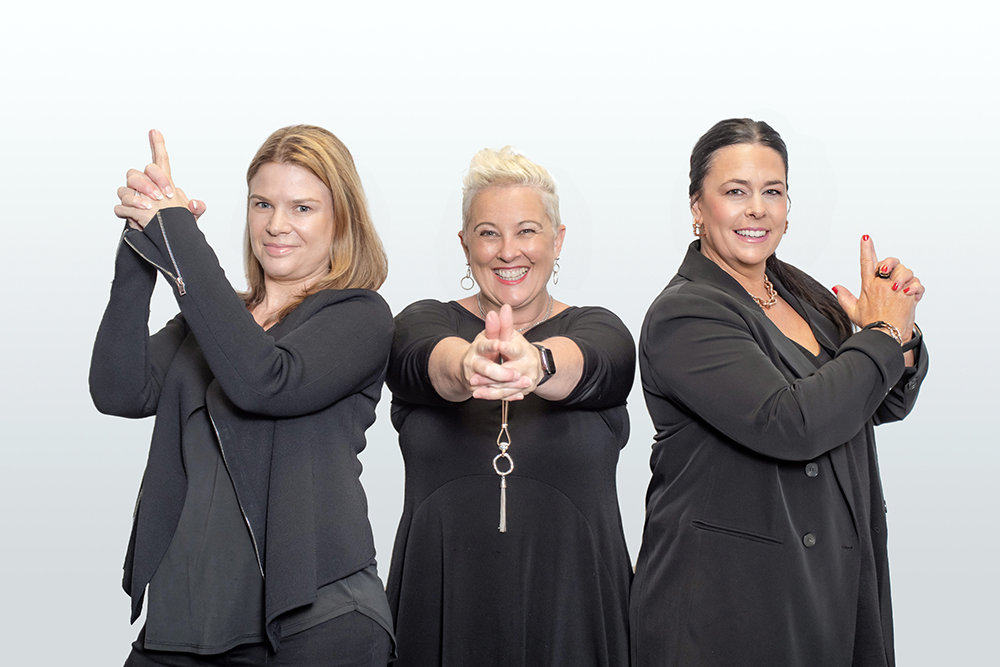Also challenging is the ability to assess just what your team is actually doing. When they are on site you have a much clearer sense of workloads and when you might need to step in and spread the load. You tend to have more insight into who’s floating along and not really getting stuck in. You are aware of the organic conversations occurring that are leading to great ideas bubbling up or that transfer of knowledge that occurs when you catch someone at the coffee machine.
It's simple, just tell everyone they need to be back at their desks and no more work from home.
Not that simple.
A significant number of really great workers want more flexibility and working from home is just one of the offerings a business can deliver if they want to secure – and keep – the best talent. So, then it really comes down to how you, as a business leader, can make it work.
THE KEYS TO SUCCESS
Expectations – If you want your people to deliver, then be really clear as to what you expect of them. Be very clear as to how they fulfill their role, communicate with yourself and the broader team, what flexibility you will allow and what you will not accept.
Are you fine with a late start and therefore a late finish? Do you mind if they pop out to the shops or pick up the kids from school? Do you prefer a definitive start and finish time so that there are boundaries around when people are working and when they are focusing on their personal lives? Every business is different and will have different needs so spell them out up front and everyone will know where they stand and what is acceptable or unacceptable behaviour from the get go.
Communication – this goes both ways. It doesn’t matter if your team is sitting right in front of you or working from their home office, they aren’t mind readers. Your communication needs to be clear and consistent. Conversely, be sure your people understand what kind of communication you require from them. Do you want daily updates, weekly check-ins or reports at regular intervals when they are working on long term projects? Are there communication tools that you want used such as an old fashioned phone call, Teams or Zoom, Slack, Messenger or just plain email?
Be mindful too as to how you communicate especially when it is not face to face. It is very easy to misinterpret messaging when we don’t have the advantage of seeing body language or hearing tone.
Regardless of whether you or your team are working from home, working on site or doing a combination of both communication is always the absolute foundation to making things work and something leaders need to be verry focused on!
Trust – this is a big one. Trust in any kind of relationship is vital to it being a successful and positive experience. If you have employees that you don’t trust to work effectively when out of your line of sight, you need to look at why. Is it you? Do you struggle with the concept of remote work? If you’ve agreed to remote work as an option in your business then you need to get onboard as your people will very quickly pick up that you don’t trust them and this will lead to disengaged employees and poor morale.
If it’s certain individuals that you don’t trust, then assess why. Are they not delivering or is it simply something in the communication process that is creating a disconnect? Do you truly understand the work they do and the time it requires to complete? Is the work they are submitting below standard and if so, is it because they lack skills, were they briefed correctly or could some additional training make a difference?
Sometimes your feelings of mistrust may be well founded and in that case, you may need to do something about that employee. With leadership comes much responsibility but employees also need to understand and respect that they too have obligations and that flexibility is a privilege and not necessarily a right when it comes to the professional environment. If someone is abusing that privilege, then you must make a decision as to how to proceed just as you would if it was poor behaviour on site.
Check in – this is different to communication. If you aren’t seeing your people, they aren’t seeing you either and all too quickly, there is a disconnect. Therefore, you need to pick up the phone and ask Fran how she is going, see what’s happening in her world and find out if there is anything she needs to finish her report. You aren’t ringing to grill Fran on her work, you are checking in to connect. Employees who feel connected will be more motivated, more engaged in their work and their output will be much higher as a result. Don’t ever underestimate the power of a conversation that is purely there to ask someone how they are!
So, while many leaders grapple with the complexities of leading remotely, if you stay focused on each individual in your team, and provide them with the boundaries and communication that they need to be successful, as well as making sure you find ways to keep your team connected to you and each other - you will find it easier to keep your team engaged and performing – and you might even start to enjoy the new world of hybrid working yourself!
If you need help setting up or adjusting your current remote or hybrid work arrangements that will support your business and set your team up for success, contact the HR Staff n' Stuff team now - we're here to help!







